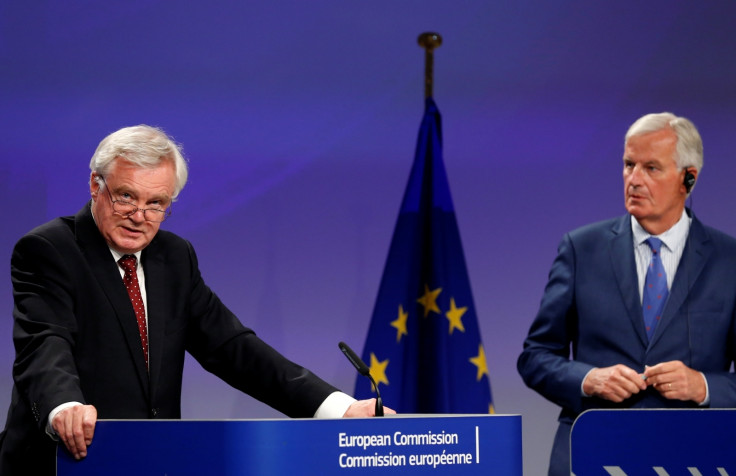Brexit department and government infighting rages on as EU trade negotiations loom
Trade talks will begin in January between Britain and the EU.

Concerns have been raised that the Brexit Secretary David Davis is being sidelined ahead of trade talks which are set to begin next month.
It was revealed by The Times that the EU's chief negotiator, Michel Barnier, had held talks with former Brexit department official, Oliver Robbins.
Government sources suggested that Brussels was attempting to undermine Davis by playing on the tensions that already exist between him and Robbins as crucial trade talks loom.
In September, Oliver Robbins left as a senior figure in the Whitehall Brexit department to join Theresa May's team in Downing Street.
He has since formed an ever-growing team inside Number 10, as part of an attempt for Theresa May to have a more solid grasp on negotiations.
Government sources told The Times that "there are a few people in Brussels who fantasise about seeing David Davis being sidelined, but it isn't how the prime minister sees it. It isn't where Britain's national interest lies and it isn't happening."
However, the tensions between Robbins and Davis are clear. A separate source told The Times that May was taking a "more prominent" role in the ongoing talks, via Robbins. "That may mean [Davis] has had less of a role, but this process is still controlled by the politicians," the source said.
Speaking to the Guardian, the government denied the suggestion that Davis was being sidelined. Officials in Whitehall said that the comments were, as Davis said in October, "offensive, indeed insulting, briefing to the newspapers, which I [Davis] take as a compliment".
The next phase of the talks will focus on the long-term relationship between Britain and the EU.
One of the first issues that will be discussed are the terms of the transition period that will come into place from March 2019 when Britain officially exits the EU.
The first phase of the negotiations were finally agreed upon in early December after lengthy delays over the rights of EU citizens living inside the UK, the future of the Irish border and the size of the divorce settlement.
Official guidelines for the next phase of talks state that initial drafts are expected in January on how the trade discussions would evolve.
They also confirm that the UK will be leaving both the single market and the customs union, an area that still causes divisions in Westminster.
The guidelines revealed that Britain cannot sign a new trade deal until it becomes a "third country" upon exit from the EU. Up until that point, all talks will be preparatory.






















